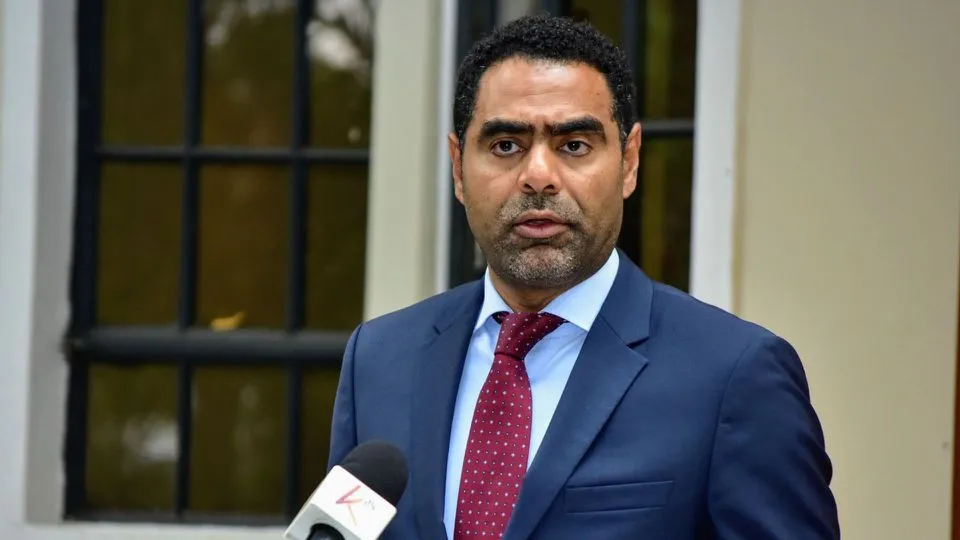In June 2025, the Football Kenya Federation (FKF) regulations and developments have taken center stage, shining a harsh yet necessary light on the state of the game and the human stories behind the headlines. With strict new rules aimed at restoring order and protecting players, and deep-seated financial woes threatening its very operations, FKF stands at one of the most pivotal junctures in its recent history.
Strengthening authority amid rising challenges
The FKF, under the stewardship of President Hussein Mohammed and Vice President McDonald Mariga, sent a clear signal in early June—they intend to leave no room for ambiguity about their exclusive mandate. “Control and supervision of all football matches and related activities throughout Kenya” is not just an administrative statement, but a declaration reflecting the need for unity and order in a landscape threatened by unchecked activities and exploitation.
What brought about this moment? FKF has grown increasingly concerned over unauthorized matches, unsanctioned player trials, and rapidly proliferating private football academies. These activities, often held without the federation’s oversight, risk exposing young talents to unscrupulous agents, inadequate safety measures, and potential exploitation. By reinforcing their authority and reminding every stakeholder—clubs, organizers, coaches, and players—of the rules, the FKF is drawing a new line in the sand for the sport’s integrity and safety.
New regulations governing football activities
Among the most impactful FKF regulations, a new protocol now requires every individual or entity wishing to organize a football event to submit a formal request to FKF’s National Office at least 14 days ahead of time. Organizers must provide specific details: the event’s nature and scope, date and venue, full list of participants, and the safeguarding measures in place. It is a measure designed to stem the tide of unregulated events and protect both the game’s image and its most vulnerable participants.
The process doesn’t stop with national oversight; each request must be coordinated through local FKF branch representatives. While branches facilitate, only the national office holds the power to approve or disqualify a tournament. This multi-layered approach—not only demonstrates FKF’s determination to enforce standards everywhere, but it also highlights the federation’s intent to bring professionalism and safety to every level of the game, especially at grassroots where oversight has long been inconsistent.
Consequences for non-compliance: Upholding integrity and dignity
FKF’s tone is unambiguous: strict compliance is expected and will be enforced. Any football activity conducted without FKF authorization is not just a regulatory breach—it risks the game’s integrity. Members engaging in unauthorized engagements face the possibility of harsh sanctions, including suspension or even deregistration. These are not just symbolic threats; they are mechanisms for both accountability and education. Through such strong measures, FKF is making it clear that every player, from budding youth to established veteran, must operate within a protected framework.
| CASINO | BONUS | INFO | RATING | |
|---|---|---|---|---|
|
bonus
New players get 50 free spins and a Ksh 2500 freebet!
See 7 Bonuses
|
info
BK 0000665 PG 0000405 Good combination of online casino and betting platform |
|||
|
bonus
Bonus on 1st deposit: Free Bet up to 10,000 KES
See 3 Bonuses
|
info
BCLB 0000794 Licensed betting platform with a variety of bonuses and high odds |
|||
|
bonus
WELCOME BONUS UP TO 19000 KES FOR SPORTS BETTING
See 11 Bonuses
|
info
PG 0000423 A simple way to start playing |
|||
|
bonus
170% crypto bonus up to $1000
See 11 Bonuses
|
info
Curacao OGL/2024/1798/1048 Over 6000 casino games & rewarding VIP program. |
Root causes: Safeguarding and the fight against exploitation
The federation’s firm hand comes at a time when safeguarding has never been more urgent. As Kenyan football grows, so do the opportunities—and threats. Unsanctioned trials and academies have been known to entice hopeful talent with dreams of stardom, but without proper oversight, players can be left vulnerable to unqualified coaches or even predatory agents. By demanding transparency beforehand, FKF aims to build a safer environment in which young athletes can pursue their dreams with confidence.
Financial struggles threaten the future
Yet, while the regulatory clampdown dominates headlines, a parallel crisis looms just as large. The FKF is battling a mountain of financial liabilities that threaten the sustainability of its operations. The numbers are stark—by January 2025, external legal fees surpassed Sh269 million, with pending liabilities close to Sh19 million from cases before the FIFA Tribunal. FKF President Hussein Mohammed did not mince words, describing the strain of “navigating financial obligations of over Sh600 million.” The weight of these debts is not only bureaucratic; it seeps into every corner of Kenyan football, restricting access to vital programs, infrastructure investment, and day-to-day operations.
Legal battles further compound the crisis. FKF faces 21 legal cases, spanning election disputes, unpaid fees, and contractual claims from legacy deals signed by previous regimes. The specter of insolvency is real—one private company is seeking court-ordered insolvency for FKF over a Sh35.7 million debt arising from a broadcast arrangement. Internationally, fines loom large: FIFA has already deducted Sh5.5 million over late payment to former Harambee Stars coach Adel Amrouche, whose compensation ballooned to Sh109 million after a ruling by the Court of Arbitration for Sport.
The human faces behind the figures
It’s easy, in the deluge of numbers and acronyms, to forget the human stories at stake. For every young player training in a dusty field, every coach working with scarce resources, and every fan dreaming of seeing their heroes thrive, these financial and regulatory crises matter deeply. They determine whether a promising midfielder gets the chance to shine under proper guidance, or whether local tournaments can even take place. For veteran stars like Austin Odhiambo, whose career movements spark headlines, these issues define both opportunities and risks in the transfer market and beyond.
What does the future hold?
As the dust settles on FKF’s sweeping reforms, questions linger. Will tighter regulations stifle much-needed grassroots innovation, or will they provide the stable foundation Kenya’s football has longed for? Will FKF’s leadership be able to turn the tide on crippling debts and restore confidence in their stewardship?
There is no easy answer. But it is in these hard times that the true character of a federation—and the spirit of its community—are revealed. Every club official filing their paperwork, every parent asking tough questions before signing their child to an academy, and every official weighing enforcement versus goodwill collectively write Kenya’s next football chapter.
Conclusion: A turning point for Kenyan football
FKF regulations and operational developments in June 2025 are more than bureaucratic moves—they are a reflection of the immense pressures, aspirations, and responsibilities carried by all who love the beautiful game in Kenya. The next few months will test not just systems, but resolve, vision, and the unbreakable bond between the sport and its people. As passionate observers and storytellers, our job is to keep the spotlight on both process and people, always remembering that behind every rule and every shilling, there is a dream waiting to breathe.










